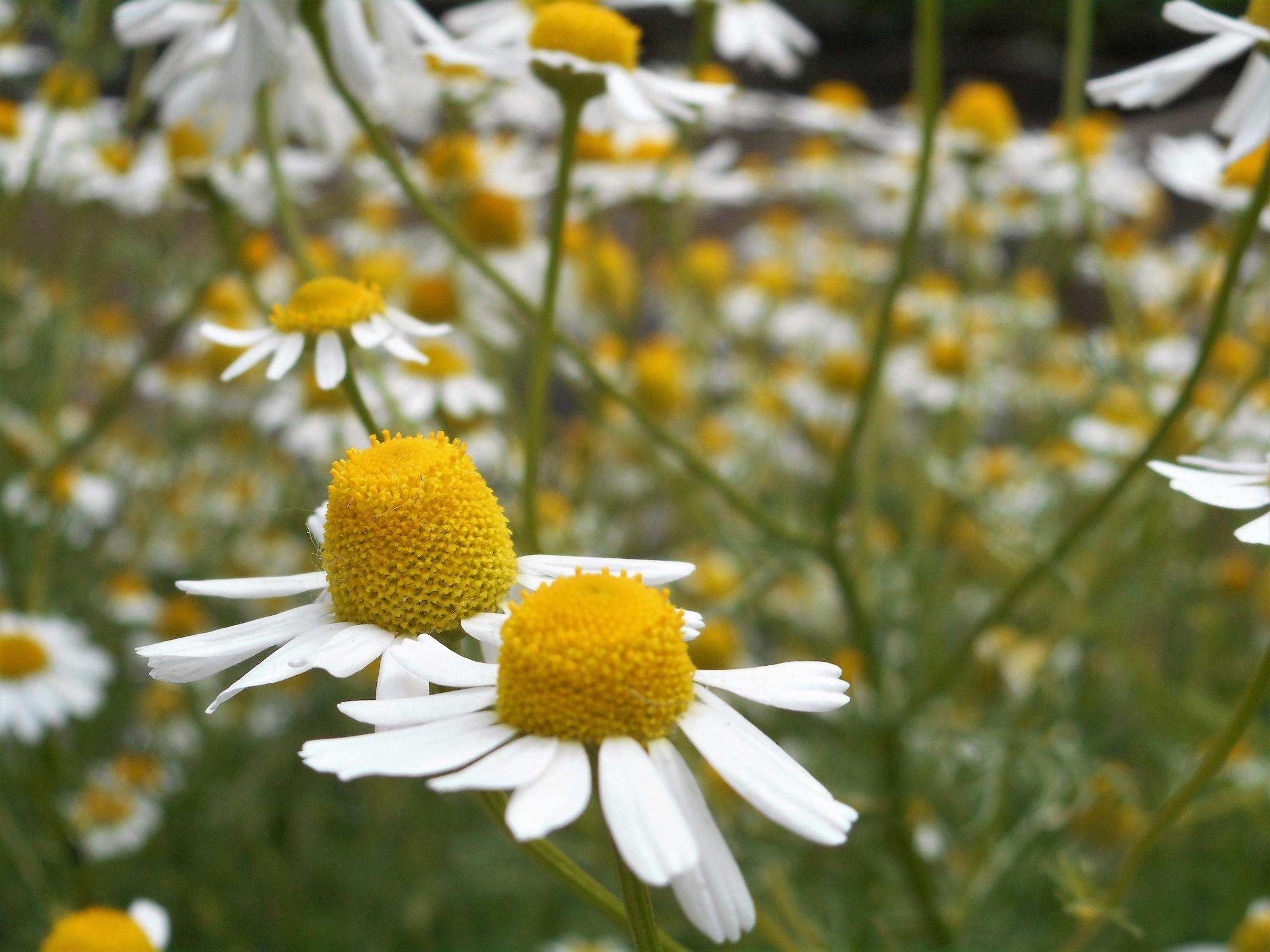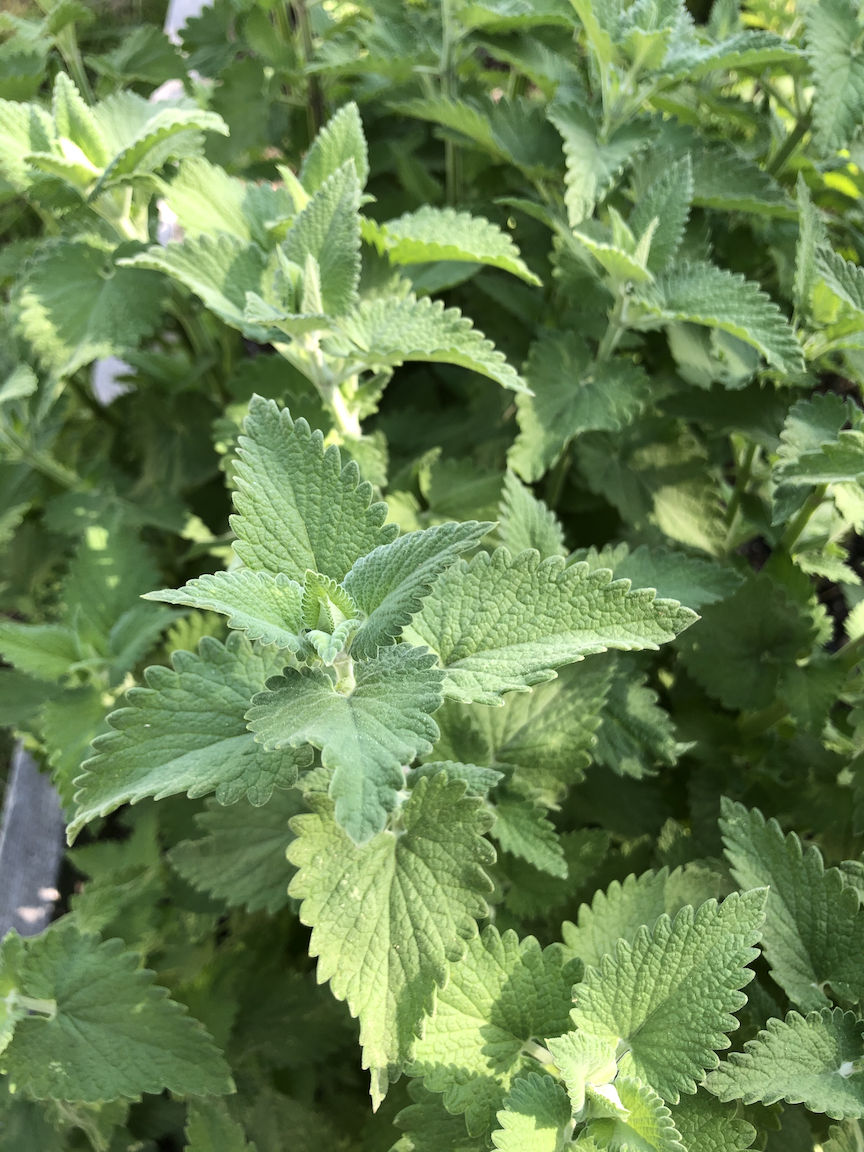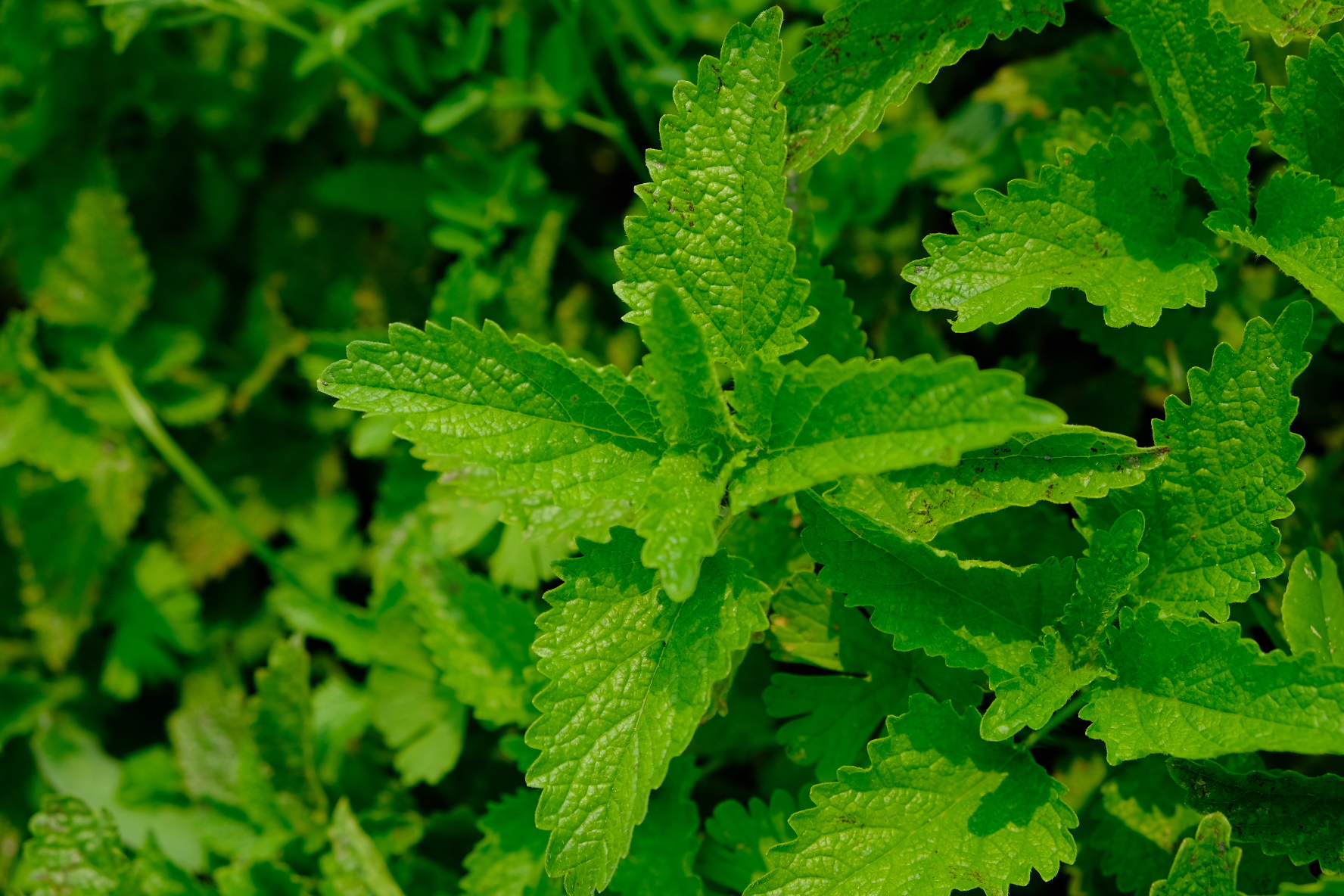When it comes to younger children (ages 2-7), many common health concerns revolve around mood, sleep, digestion, and immunity. Our kids (who are now a lot older) were blessed with generally good health, but an upset tummy, a runny nose, or a fussy night could make parenting more challenging. That’s why we relied so frequently on gentle, tasty, and common herbs to support mild symptoms and help our kids stay as healthy and happy as possible!
Remember, if your child is less than 1 year old, has a chronic health condition takes medications, or has symptoms that are lasting greater than 72 hours, please seek expert advice from a trusted healthcare practitioner. A high fever, dry skin or mouth, a spreading rash, decreased urination, excessive sleepiness, or inconsolable crying, are always reasons to get help immediately!
Chamomile

German chamomile (Matricaria recutita) is among one of the most ubiquitous herbs globally. Many of us in the United States are familiar with Sleepy Time tea, and in most corners of the world, you can find fresh or dry chamomile in farmers’ markets, apothecaries, and grocery stores. Chamomile flowers are rich in aromatic essential oils with anti-inflammatory and muscle-relaxing properties that benefit the gut lining and smooth muscles of the digestive tract. Chamomile also contains bitter compounds that help our digestive system secrete bile and enzymes to break down a meal. That’s why chamomile tea is so helpful for an upset stomach or to promote optimal digestion after eating. For fussy eaters, a little chamomile tea or glycerite before eating may stimulate the appetite, while it can be taken after eating in case of gas or discomfort. Chamomile is generally safe, including for pregnant and breastfeeding moms, except in cases of allergies to the Asteraceae family.
Chamomile recipe:
Chamomile bedtime chai
2 tbsp dry chamomile, 2 tea bags, or ½ cup fresh chamomile
2 cups of boiling water
½ cup milk (dairy or non-dairy substitute)
2 tsp honey* or sweetener of your choice
1 dash of cinnamon, nutmeg and/or cardamom
Boil the water then infuse the chamomile for 5 minutes or until the tea is honey-colored in a teapot or French press. Strain and add milk of your choice and honey. Sprinkle with spices as desired. For extra flair, froth the milk prior to serving.
Catnip

Catnip (Nepeta cataria) isn’t just for cats (or kids… more on that later). A fragrant member of the mint family, catnip is an herb that both relaxes and focuses the mind, lifts the mood, and soothes digestion. One of the essential oils, nepetalactone, attracts cats and repels insects–but has no addictive potential or adverse effects for humans! Other essential oils in catnip have been found to have antiviral, antifungal, and antibacterial activities. We love using catnip to help us and the kids focus on reading, writing, or other homework when other activities are more enticing or stress levels are high. It’s also a lovely addition to flavor and enhance the immune-supporting benefits of other herbs taken as tea, tincture, or glycerin when fighting off a bug.
Catnip recipes:
Catnip tea-sicles
Are you and/or the kids feeling hot and bothered? These calming ice-pops are just the cooling remedy for a hot summer afternoon.
2 tbsp dry or ½ cup fresh catnip
2 cups of boiling water
Honey* or sweetener of your choice to taste
4 popsicle molds
Brew tea by steeping herbs in the hot water for 5 minutes, covered to protect the volatile oils from evaporating. Strain and add honey or sweetener to taste. Let cool to room temperature, and then pour into popsicle molds. Freeze overnight and serve as desired.
Lemon Balm
Lemon Balm is an herbal cousin of Catnip in the Mint family (Lamiaceae). Exuding a delicious lemony scent, lemon balm is rich in essential oils with many health benefits. For kids, lemon balm calms the mind, lifts the mood, and supports digestion, plus it tastes great! For kids who don’t like drinking tea or taking supplements, adding lemon balm tea to a bath, or applying cool tea with a washcloth to the body, can be soothing for a sick or cranky kid. Lemon balm has been traditionally added to immune-boosting herbal blends at the onset of an illness to help break a sweat and improve comfort. Unlike catnip, which rarely causes drowsiness, larger doses of lemon balm can support sleep, making it a natural companion to chamomile for bedtime.
Lemon Balm Lemonade
2 tsp dry or ½ cup fresh lemon balm
½ cup lemon juice
4 cups water
Honey* or sweetener of your choice to taste
Brew tea by steeping herbs in the hot water for 5 minutes, covered to protect the volatile oils from evaporating. Strain and add honey or sweetener to taste. Let cool to room temperature, and add the lemon juice. Refrigerate or serve immediately, with or without ice.
*Please note: never feed raw honey to infants under 1 year of age due to the risk of botulism.
If you want to skip the recipes and try our Certified Organic Calm Kid Alcohol-Free Glycerite, this combination of Chamomile, Catnip, and Lemon Balm in organic vegetable glycerin is a tasty, shelf-stable solution for kids of all ages.


